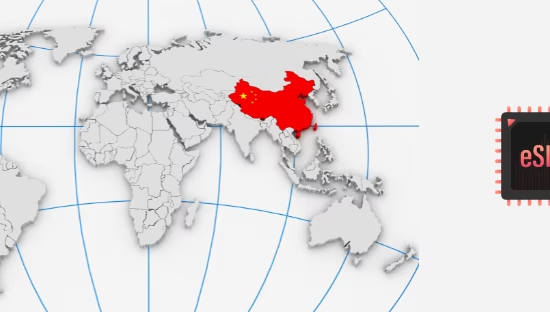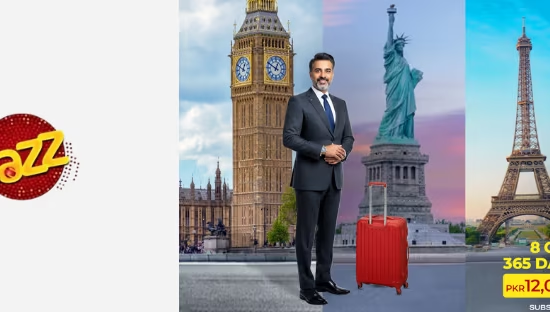
Travel eSIMs: Tech Tool or Travel Essential? The Poll Results
Travel used to be about tickets, luggage tags, guidebooks, and printed hotel reservations. Today? It’s apps, QR codes, digital wallets, and yes — eSIMs.
In our latest poll, we asked a simple question:
“Do you consider travel eSIMs a tech product or a travel product?”
The answers say a lot more than we expected.
- Neither — I don’t think about it that way: 14.29%
- Travel product — part of trip planning: 21.43%
- Tech product — like an app: 28.57%
- Both: 35.71%
Total votes: 2,789
So… what does this tell us? That eSIMs are no longer just “tech.” They’re not just “travel tools,” either. They exist in this blurry space where travel and technology overlap — and honestly, that’s where the future of travel is headed.
Wait — So What Is an eSIM to Travelers?
Let’s be real: five years ago, most people didn’t even know what an eSIM was. Now, we casually activate data plans while boarding a flight or waiting for an Uber.
But how people define eSIMs is where things get interesting.
- Only 21.43% see eSIMs as part of travel planning — like booking flights or packing passports.
- 28.57% view them more like technology — an app, a tool, something digital nomads and gadget lovers deal with.
- 35.71%, the biggest group, said both — meaning for them, eSIMs live in this middle space between travel necessity and tech convenience.
- And then there’s the 14.29% who basically shrugged and said, “I don’t think about it that way at all.”
This last group is probably the most revealing. It means eSIMs are becoming so normal that people don’t even label them anymore. Just like Wi-Fi or boarding passes on your phone — they’re simply part of the process.
Travel vs. Tech — Why This Line Keeps Blurring
Think about your last trip. Did you:
- Check in online?
- Use Google Maps to navigate?
- Scan a mobile boarding pass?
- Pay with Apple Pay or Revolut instead of cash?
- Book your train tickets, museum passes, and hotels through apps?
- Use an eSIM instead of waiting in line to buy a local SIM card?
If you answered “yes” to most of those — congratulations, you’re already traveling digitally.
That’s why polling people on whether eSIMs are “tech” or “travel” feels like asking if Google Maps is a “map” or a “technology product.” It’s obviously both.
Why This Poll Matters (More Than You Think)
We’re not just talking about definitions here.
This poll tells us something bigger about how people now approach travel:
- Travel is no longer just physical — it’s digital first.
Before we even pack, we’re downloading, syncing, booking, checking data plans, and making sure our digital life travels with us. - Products like eSIMs don’t fit into traditional boxes anymore.
They’re not just gadgets or accessories. They’re part of how we move through the world. - Travelers now expect frictionless connectivity — not just when they arrive, but from the moment they leave home.
From Niche Tech to “Wait, You Don’t Use an eSIM?”
Let’s rewind to when eSIMs quietly entered the market. At first, they were:
- Hard to find
- Only available on a few phones
- Mostly used by tech enthusiasts, backpackers, and digital nomads
Fast forward to now and things have completely changed:
- Every major smartphone brand supports eSIMs
- Airlines, tourism boards, and even airports promote them
- Roaming fees are dropping because travelers finally have a choice
- And most importantly—people expect to land and be online. Instantly.
No hunting for a SIM kiosk. No language barriers. No paper contracts. No “where’s the Wi-Fi password?”
Why 35.71% Said “Both” — And Why That’s the Future
The biggest vote went to “both” — and honestly, that feels right.
Because for most travelers today:
- An eSIM is as much part of packing as a passport
- But it’s also as technical as updating your iPhone
- It’s a travel essential that lives inside your phone—never lost, never bent, never forgotten
It’s like a digital travel adapter, but smarter.
So Why Do Labels Still Matter?
Because how we define something affects how we use it and how it’s marketed.
If eSIMs are seen as travel products, then travel agencies, airlines, hotels, and even booking sites will promote them as part of the journey.
If they’re seen as tech, then they stay in app stores, comparison sites, and tech reviews—and never fully integrate into mainstream travel experiences.
If they’re seen as both—that’s where innovation happens. Think of:
- Airlines selling eSIMs alongside flight tickets
- Hotels offering eSIM data as part of guest perks
- Booking platforms adding “connectivity” to their checkout flow
- Travel insurance + eSIM bundles
- Tourism boards giving visitors free data instead of printed maps
Suddenly, connectivity isn’t an afterthought — it’s built into the travel experience.
And that 14.29% who said “Neither”?
These are the people who don’t label eSIMs at all. And that’s actually a sign of normalization.
Just like we don’t say “digital ticket” anymore—we just say “ticket.”
We’ll stop saying “travel eSIM.” It’ll just be “internet.”
Here is the next poll:
Final Thought—The Future of Travel Isn’t Offline or Online. It’s both.
This poll didn’t just show opinions—it showed a shift in mindset.
People no longer travel with technology. They travel through it.
Airports, hotels, taxis, maps, translators, payments—all of it runs on connectivity. And eSIMs are quietly becoming the backbone of that entire ecosystem.
So next time someone asks, “Is an eSIM a tech tool or a travel product?”—maybe the real answer is:
It doesn’t matter. is eSIM a travel product
It’s just part of how we travel now.











